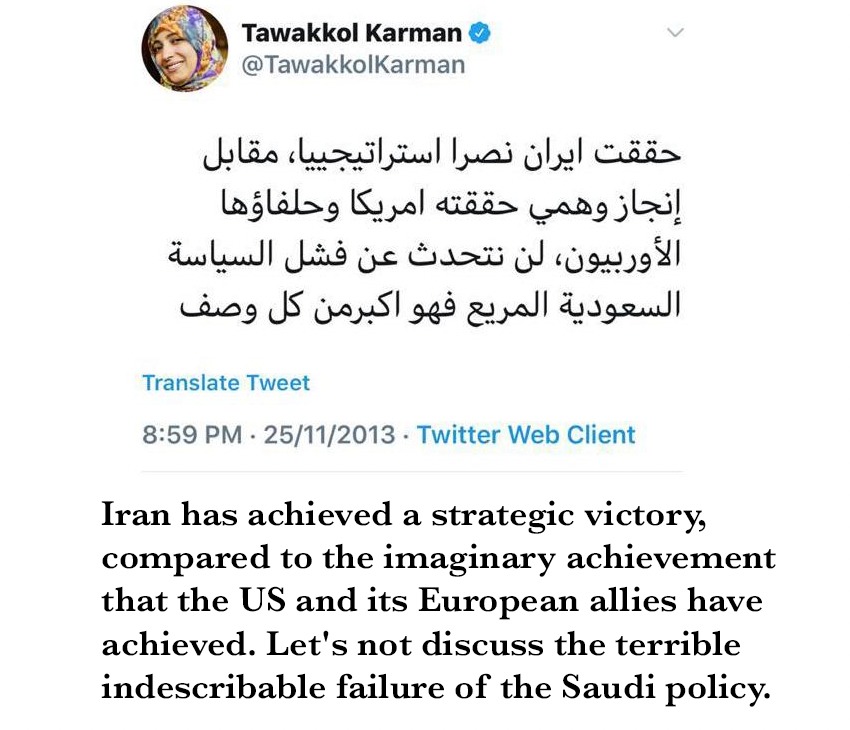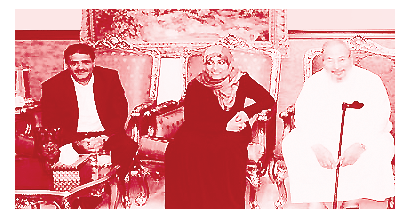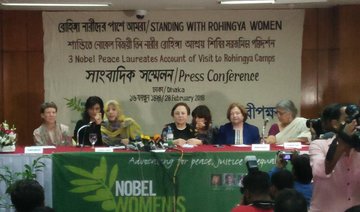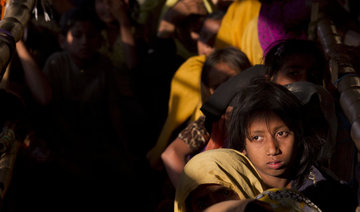LONDON: Yemeni journalist and political activist Tawakkol Karman has complained of “widespread bullying and smear" after Facebook’s decision to induct her into its content Oversight Board plunged her into controversy. But what if her credibility was more at risk from her own words and actions than any alleged “smear campaign?”
To much of the globe, Tawakkol Abdel-Salam Khalid Karman is the first Arab woman — and the second Muslim woman — to win a Nobel Prize, in 2011.
Less well known is the fact that Karman held a senior position with her country’s Al-Islah Party, an affiliate of the Muslim Brotherhood known regionally for its divisive and violent agenda.
#Spotlight: Here is #MuslimBrotherhood sympathizer Tawakkol Karman, who has just been appointed by @Facebook to advise on content, issuing threats to all Gulf countries — except #Qatar https://t.co/qJMkI6ntih pic.twitter.com/3MHPeWzBZU
— Arab News (@arabnews) May 12, 2020
Karman has severed ties to the Brotherhood’s Yemeni branch, an Islamist movement founded by Abdul Majeed Al-Zindani, a man who figures in Washington’s Specially Designated Global Terrorist list. But many wonder whether the move was merely a cosmetic exercise.
Unsurprisingly, Facebook’s choice has prompted outrage on social media networks, with many worried that it will bring the Muslim Brotherhood’s ideas right into the heart of the biggest social networking company in the world.

“She has not denounced the extremist ideology of the Muslim Brotherhood,” Ghanem Nuseibeh, founder of risk consultancy Cornerstone Global Associates, told Arab News.
“On the contrary, there is everything to believe that she continues to espouse the hate speech that has been a mark of the Brotherhood in general.”
Given her prominent role in the revolution that toppled Yemen’s former leader Ali Abdullah Saleh, Karman’s Nobel Prize is not without merit, say political analysts. But they add that her advocacy of extremist causes can hardly be glossed over.
“Karman was considered a symbol of the Yemeni revolution against the rule of Saleh, but over time she has become associated with intolerance, discrimination and lack of neutrality,” Hani Nasira, a terrorism and extremism expert, told Arab News.
Soon after Karman was awarded the Nobel Prize, she was invited to Doha and personally congratulated by Yusuf Al-Qaradawi, the Muslim Brotherhood leader and preacher of hate, whose fatwas call for suicide bomb attacks and who praises Hitler for “punishing” the Jews.
After conveying to her his message of “support” for the Yemeni people, Al-Qaradawi gave Karman a copy of his book, “Fiqh Al-Jihad,” as a gift.

Such easy rapport with a personality as controversial as Al-Qaradawi calls into question Karman’s political beliefs, despite her ostensible split with the Brotherhood’s Yemeni branch.
It also rings the alarm about the judgement of Facebook, a social networking behemoth that claims to be an unbiased arbiter of international political discourse.
“We understand that people will identify with some of our members and disagree passionately with others,” a Facebook Oversight Board spokesperson told Arab News.

Tawakkol Karman with Yusuf Al-Qaradawi. (Supplied)
“Board members were chosen to represent diverse perspectives and backgrounds that can help with addressing the most significant content decisions facing a global community.”
Facebook declined to respond to specific questions regarding Karman’s links to extremist groups. But clearly the platform has put its credibility on the line by bringing her on board.
Facebook “risks becoming the platform of choice for extremist Islamist ideology,” Nuseibeh, who is also chair of UK-based nonprofit Muslims Against Anti-Semitism, told Arab News.
“With Karman’s appointment, Facebook’s argument that it is an impartial platform is severely weakened. There is no guarantee that Karman will not have a direct editorial influence on what Facebook allows to be published.
“Would Facebook, for example, appoint Aung San Suu Kyi, another Nobel laureate, to arbitrate in disputes over posts related to the Rohingya atrocities in Myanmar?”
Nuseibeh added: “Karman, to much of the world, is what Aung San Suu Kyi is to the Rohingyas.”
Karman’s abrasive personality became evident during the Arab Spring protests, which began with Tunisia’s “Jasmine Revolution” in 2011 before spreading out to other Arab countries including Yemen.
Previous Yemeni protest leaders who had aligned with her called her “dictatorial,” someone who went against the consensus of peaceful movements by urging young protesters to march on in the face of imminent danger.
“She called for that march, the police brutally attacked it and 13 people died,” one protest organizer who declined to be named told Reuters in 2011.
“She didn’t apologize for it and it really upset a lot of people.”

In recent years, Karman’s utterances have tended to hew closely to the party line of her two leading patrons, Qatar and Turkey, while being reflexively critical of the actions of Saudi Arabia.
For instance, in an interview with the Saudi daily Al Riyadh in 2015, Karman praised the Arab coalition and its role in restoring the UN-backed government in Yemen.
She called it a “savior” and posed for a picture with President Abd-Rabbo Mansour Hadi, who she described as “the legitimate leader of the country.”
A few years later, she suddenly changed her tone to accuse Saudi Arabia and the UAE of committing war crimes in Yemen, and demanded the toppling of regimes in Egypt and Bahrain.
It was no coincidence that all the four countries she denounced happened to have cut diplomatic ties with Qatar on June 5, 2017, for its refusal to abandon support for extremists.
“Karman’s loyalty to, and association with, governments that flout all norms of democracy, such as Qatar and Turkey, deprives her of any claim to neutrality and objectivity,” Nasira said.
“Her political rhetoric encourages extremism, divisiveness and shunning of those who disagree with her current loyalties.”
Numerous posts on her Twitter handle and Facebook page attest to her desire to see specific Arab governments destabilized and toppled.
She has called on Bahraini, Algerian and Tunisian citizens to revolt against their governments, and accused the Egyptian army of being full of terrorists.
#Spotlight: #Facebook’s new content Oversight Board member is Tawakkol Karman, viewed by many as a Muslim Brotherhood sympathizer with deep ties to regional and international networks backed by Qatar and Turkey https://t.co/qJMkI6ntih pic.twitter.com/ljFE9Liu8b
— Arab News (@arabnews) May 12, 2020
“Saudi Arabia should be worried. All the Gulf countries should be scared, except for Qatar,” Karman can be heard saying in an undated video clip broadcast by Yemen TV.
In another video aired in 2019, Karman likened Saudi Arabia to Daesh, saying: “No country other than the Saudi Kingdom could be like ISIS.”
Karman’s unremitting hostility towards Saudi Arabia and the UAE has made her almost a natural choice for stewardship of the Qatari-funded and Turkey-based Belqees TV station.
The consensus view of many Middle East political observers is that Karman is an Islamist activist who is firmly embedded within regional and international networks backed by Qatar and Turkey.
“Karman is an extremely divisive figure whose judgement is severely impaired by her many years of (harboring) extreme political bias,” says Nuseibeh.
As for Facebook, the company “has only one choice to make and that is to sever all ties” with Karman, he told Arab News.
“If it doesn’t, Facebook would be on the side of promoters of hate speech, extremism and anti-Semitism.”















